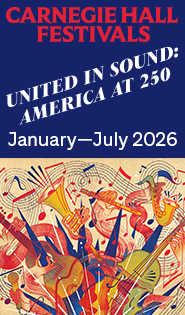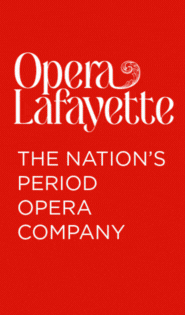Les Arts Florissants serves up an exuberant “Platée”

Tenor Marcel Beekman sang the title role in Les Arts Florissant’s concert performance of Rameau’s “Platée” Wednesday night at Lincoln Center.
On Wednesday night when Les Arts Florissants capped a run of Robert Carsen’s production of Rameau’s Platée in Paris and Vienna with a concert performance at Alice Tully Hall, conductor William Christie sat in the audience.
Recent surgery forced Christie to pass the baton of his renowned group to Paul Agnew. Agnew led with sureness and an infectious enthusiasm, and is himself a memorable interpreter of the title role: a vain and ugly swamp nymph, cruelly used by the gods in an attempt to patch up a dispute between Jupiter and his jealous wife Juno.
Gods and muses mingle with marshy creatures in Rameau’s comic opera, and the work is full of nature noises like croaking, quacking and chirping, in addition to string volleys depicting gusts of wind and full-scale storms. The orchestra even depicts the braying of Jupiter in his brief donkey disguise, while toe-tapping dances show off the composer’s great rhythmic invention and colorful orchestration.
A table and chairs suggested various locales, while the lavish costuming of Carsen’s fashionista-driven production was only hinted at. But the troupe’s familiarity with the work drew magnificently assured performances from orchestra, chorus and soloists, filled with improvisatory excitement and dramatic flair. Eloquence and contrast in Rameau’s superb orchestral numbers, including a beautiful droning musette featuring bassoon and piccolo, almost made up for the missing dance choreographies.
In the travesti title role, Dutch tenor Marcel Beekman strutted the stage in silver stilettos and a pouffy up-do, his diamond jewelry and persimmon chiffon (with matching fingernails) screaming trashy divorcée. Although he lacks the inherently humorous timbre of Jean-Paul Fouchécourt, the unforgettable frog of Mark Morris’s production for New York City Opera, or the soft-edged pathos of Agnew in Platée’s clueless wonderment, Beekman’s great strength is his consummate musicality. His easy ornamental panache—with surprising octave leaps, sudden changes of dynamics, and skittering scales—never failed to delight.
With her extravagant and wacky style, German soprano Simone Kermes ate up the role of La Folie (Folly), arriving with a demented snake-charmer dance and acting out the wild coloratura and Italianate cadenzas of her arias, especially “Aux langueurs d’Apollon,” in gangnam style. In gold and black sheath-cum-panniers gown, Kermes pranced and strutted, soliciting cheers mid-aria, laughing and pointing, encouraging the audience to clap along, and delivering clear, pungent high notes to boot.
João Fernandes is a singer New York needs to hear more of, and he brought animated energy and attractively resonant singing to the role of Momus. Cyril Auvity’s nimble, high-lying tenor was a constant delight in the plot-moving roles of Thespis and Mercury, and he wisely refrained from joining in the hammy grandstanding of Marc Mauillon’s Cithéron.
Jupiter’s entrance music is glorious and Edwin Crossley-Mercer played to the role’s nobility and stiff authority, but his creamy legato singing lacked suppleness and definition. Emmanuelle de Negri and Virginie Thomas displayed pure soprano voices and lively phrasing, while mezzo-soprano Emilie Renard brought spikey and alert diction to the role of Juno, her callous laughter provoking Platée’s final deflation and embarrassment.



